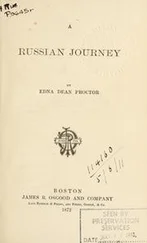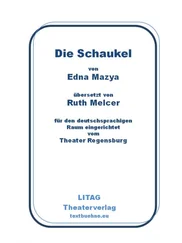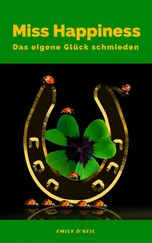Emily Eden - Miss Eden's Letters
Здесь есть возможность читать онлайн «Emily Eden - Miss Eden's Letters» — ознакомительный отрывок электронной книги совершенно бесплатно, а после прочтения отрывка купить полную версию. В некоторых случаях можно слушать аудио, скачать через торрент в формате fb2 и присутствует краткое содержание. Издательство: Иностранный паблик, Жанр: foreign_antique, foreign_prose, Биографии и Мемуары, на английском языке. Описание произведения, (предисловие) а так же отзывы посетителей доступны на портале библиотеки ЛибКат.
- Название:Miss Eden's Letters
- Автор:
- Издательство:Иностранный паблик
- Жанр:
- Год:неизвестен
- ISBN:нет данных
- Рейтинг книги:3 / 5. Голосов: 1
-
Избранное:Добавить в избранное
- Отзывы:
-
Ваша оценка:
- 60
- 1
- 2
- 3
- 4
- 5
Miss Eden's Letters: краткое содержание, описание и аннотация
Предлагаем к чтению аннотацию, описание, краткое содержание или предисловие (зависит от того, что написал сам автор книги «Miss Eden's Letters»). Если вы не нашли необходимую информацию о книге — напишите в комментариях, мы постараемся отыскать её.
Miss Eden's Letters — читать онлайн ознакомительный отрывок
Ниже представлен текст книги, разбитый по страницам. Система сохранения места последней прочитанной страницы, позволяет с удобством читать онлайн бесплатно книгу «Miss Eden's Letters», без необходимости каждый раз заново искать на чём Вы остановились. Поставьте закладку, и сможете в любой момент перейти на страницу, на которой закончили чтение.
Интервал:
Закладка:
It opens with a moral: “We are better off and happier than is properly compatible with a life of innocence and vegetation. Our house is delightfully clean and comfortable. The living very good. Fish caught at eight in the morning at Hastings is devoured here at three. The eggs, cream, and butter, are brought to us in an hourly succession of freshness. All the material of the kitchen excellent, and the appetite too pure to think that it is a female that cooks it. Then a few glasses of hock and some coffee, and an hour’s repose, and we meet at Lady C. Greville’s, 215 215 Lady Charlotte Cavendish Bentinck married Charles Greville.
Alvanley 216 216 William Arden, 2nd Baron Alvanley, born 1789, died unmarried in 1849.
and his sisters, and the F. Levesons. 217 217 Francis Leveson-Gower, son of the 1st Duke of Sutherland. Later he inherited property from the last Duke of Bridgewater and became known as Francis Egerton. He married Harriet, daughter of Charles Greville in 1822. In 1846 he was created Earl of Ellesmere.
We assort ourselves upon horses, into barouches, etc., and start for some of our inexhaustible lions; and we end our evening together with the feast of nonsense and the flow of tea.” He ends his letter with a promise to be at Norman Court the 1st of September, and adds, “My guns are at home and the locks click sweetly. Water the turnips when it does not rain.”
How much more foolish men are than women, particularly about their amusements. We none of us write to each other about our white sattin gowns that are hanging sweetly up at home.
George does not mention what is I think the most curious part of our life – that I am actually dressed and down at the Wells every morning before half-past eight, and he generally arrives only five minutes later. We dine at three and go to bed at eleven, and are in a ravenous state of hunger at all hours; and the consequence is that I can already walk three or four miles without being tired.
The Duchess of Kent arrived two days ago, and we live in a transport of loyalty. We insisted on illuminating for her and dragging her into the town, which naturally alarmed her, so she put off coming, meaning to step in unobserved. But that our loyalty could not suffer; and I never stepped out without 50 yards of rope in one pocket, and a Roman candle in the other, for fear of accidents. However, I believe she was allowed to drive up to her own door, but there were some fine illuminations afterwards.
Lord Alvanley is an amusing incident at this sort of place, and it is a pity he is not more likeable, because there is certainly nobody more amusing. He goes away Tuesday, but he liked it so much he means to come back again. We all parted yesterday evening, quite worn out with laughing, and yet I cannot recollect what he said. But it was very delightful. Except these tea-drinkings we could not be quieter or more independent in a country home of our own. Nobody visits of a morning, and in the evenings they are all in their coloured morning dresses.
You will be happy to hear that our three-shilling coarse straw bonnets are only a shade too good for the style of dress here.
I wish you were here. The man who built this house might have guessed we should like to have you. The upholsterer knew it, for there are more beds than enough, two in each room, but there are only three good bedrooms, and neither Fanny nor I could sleep except in a room by ourselves. But you must let me know your plans, because George will be obliged to go away in a fortnight more, and unless any of my sisters mean to take his place, which I do not suppose they will do, I think you might give us a visit. It is the sort of life you would like. I have not done so much drawing for years as during the last week. I have copied those six Prints on six cards for that tiresome Hertford fair, and they looked so pretty in that small shape I was quite sorry to send them to Robert.
What nice weather you have for your Gravesend expedition. Is the great review of Tide-waiters 218 218 The Tide-waiters waited for ships coming in on the flood-tides to collect duties.
taking place to-day? I have not the least idea what they are, what are the origin, manners, and customs of the nation of Tide-waiters? If they are people who wait till the tide serves they will flourish for ever. The poor dear tide never serves anybody, and if they gain their bread by tide-waiting, what floods of tears they must shed at Othello’s description of the Pontic Sea, which knows no retiring ebb…
I am decidedly in what Swift calls “a high vein of silliness” this afternoon; but it is the fault of the weather and of being in the country, which, after all, is the only thing that makes actual happiness. Your affectionate
E. E.219 219 The Grange, Alresford, Hampshire, belonged to Mr. Alexander Baring.Sunday , 1826.
MY DEAREST THERESA, I should have written sooner to tell you where to write to me, but I was rather in hopes George would let me stay another month at Tunbridge. Everybody was going away, so we might have had a very small house for half the price we gave for ours, and as the servants will eat whether they are there or in Grosvenor Street, I thought we might have lived more economically than in posting all over England. However, after much correspondence, George, who terrifies me by the way in which he spends his own money, settled that the expenses were nearly equal, and that being the case that he would rather have us with him. “I never met with such an instance of politeness all my life,” as the immortal Collins observes, – not the Professor Collins, but the far greater “Pride and Prejudice” Collins. And so we packed up and came here, and I expect George and Mr. Wall to arrive every minute.
In shooting season they only travel on Sundays, I observe. We lived at Tunbridge almost entirely with the F. Levesons. I had a great idea that I should dislike her, which was a mistake, and if I were given to engouements , I should suppose I were suffering under one now for her, only it came very gradually, which is not the case with that complaint, I believe. First a decrease of dislike, and then not caring whether she were in the room or not, and then a willingness to walk towards her house, and then an impossibility to walk in any other direction.
The last fortnight we had the de Roos’s, who dined with the F. Levesons’s as often as we did, or else we all dined with the Peels; 220 220 Lawrence Peel, married, 1822, Lady Jane Lennox, sister of Lady Georgina de Roos.
and if we dined early, we rode after dinner and met again for tea. I can ride four hours at a time now without the least fatigue and walk in proportion. I like the Peels too, only I wish Lady Jane would bind him apprentice to a tinker, or a shoemaker, or to anybody who would make him work, as he seems to have an objection to the liberal professions. From mere want of employment, he has fancied himself into bad health, and does nothing but hold a smelling-bottle to his nose all day, even at dinner. How it would annoy me if I were his wife! – because he has talents enough, and can be pleasant when he is roused. I cannot think how any clever man who has not estate enough to find his property an occupation, can consent to be thrown by his own choice out of all professions. I should be a lawyer to-morrow if I were Lawrence Peel, or a lawyer’s wife if I were Lady Jane. She might persuade him into it I am sure, if she would try, and it would be so much better economy than consulting Doctor Mayo three times a day, which he does sometimes.
There is nobody here but Lord Carnarvon and his daughter, and Mr. Newton the painter, and one of the sons of the house. This is such a delicious house now it is finished, and heaps of new books and good pictures.
Читать дальшеИнтервал:
Закладка:
Похожие книги на «Miss Eden's Letters»
Представляем Вашему вниманию похожие книги на «Miss Eden's Letters» списком для выбора. Мы отобрали схожую по названию и смыслу литературу в надежде предоставить читателям больше вариантов отыскать новые, интересные, ещё непрочитанные произведения.
Обсуждение, отзывы о книге «Miss Eden's Letters» и просто собственные мнения читателей. Оставьте ваши комментарии, напишите, что Вы думаете о произведении, его смысле или главных героях. Укажите что конкретно понравилось, а что нет, и почему Вы так считаете.












